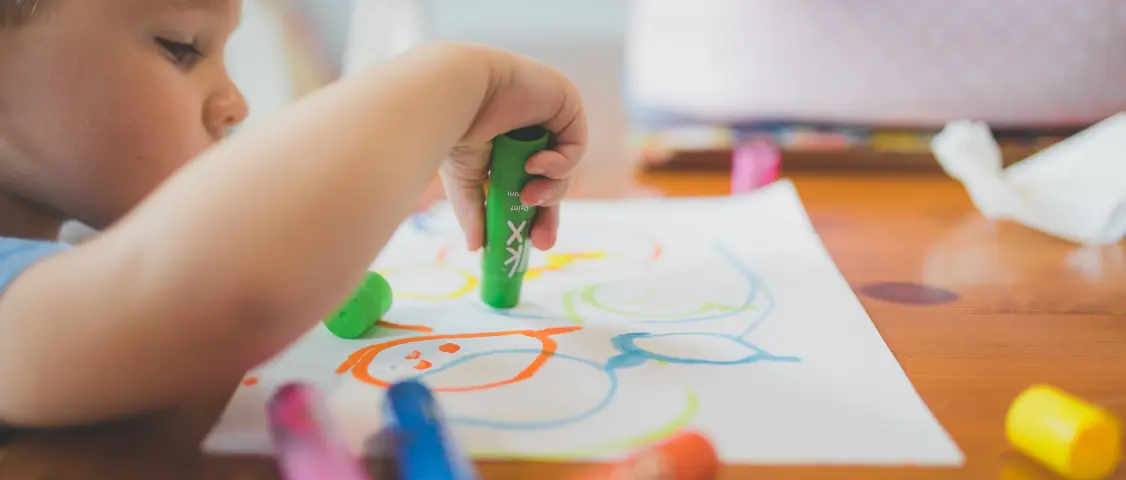When your child starts to show signs of distress or behavioral changes, it can be challenging to know how to help. For instance, you may notice your child coming home from school withdrawn and anxious, struggling to express what’s bothering them. You may wonder if these changes are part of growing up or indicate a deeper issue requiring professional attention.
Child therapy can be a vital resource in these situations, offering professional guidance to help your child navigate their emotions and develop effective coping strategies. Child therapy focuses on identifying children’s unique strengths and challenges and working on strategies to promote those strengths and get appropriate support for their needs.
Research has shown that active parental involvement is essential during therapy to reinforce therapeutic strategies at home and make the process more comfortable for the child, indicating parents’ influential roles in the process.
What is Child Therapy?
Child therapy is a form of psychotherapy that aims to address and overcome issues affecting a child’s well-being, behavior, and development. Additionally, a significant focus is on skill development and strengths-focused therapy to promote confidence and self-esteem. By providing a safe and supportive environment, therapists help children express their feelings, understand their experiences, and develop healthy coping mechanisms.
For example, a child with autism will receive direct support to manage symptoms related to communication and work on developing artistic abilities they are passionate about through creative expression. This approach not only helps in addressing specific symptoms related to autism but also enhances the child’s self-confidence and ability to express their emotions.
Child therapy can be particularly beneficial for children dealing with anxiety, depression, attention-deficit/hyperactivity disorder (ADHD), autism spectrum disorder (ASD), and trauma. In these conditions, early intervention is crucial for providing the most effective support early on and mitigating long-term effects to ensure children have the tools they need to thrive as adults.
Additionally, child therapy can be beneficial in the absence of mental health issues, such as adjusting to changes in the family, dealing with loss and grief, or dealing with academic challenges as a way for a child to learn effective coping strategies, become more self-aware, and cultivate self-esteem.
Benefits of Child Counseling
Child therapy benefits a child’s emotional, social, and psychological development. By addressing these areas comprehensively, therapy helps children build a solid foundation for their well-being and future success.
Emotionally, child therapy teaches strategies to improve emotional regulation, reduce symptoms of anxiety and depression, increase resilience to emotional stress, and teach healthy ways to process emotions. For instance, a therapist may use deep breathing exercises to help reduce stress and promote a sense of calm when experiencing performance anxiety at school.
Psychologically, child therapy helps to increase self-esteem and confidence, develop self-awareness, enhance problem-solving and time-management skills, and support academic pursuits. For example, a therapist may use a game like Catch It, Check It, Change It Football, where children learn to recognize negative thoughts and reframe them through interactive play.
Socially, child therapy provides strategies to improve both verbal and non-verbal communication, develop empathy, better understand and respond to others, and improve overall family dynamics. For instance, through role-play exercises, children can practice and refine their communication and empathy skills when sharing toys or initiating play with other children.
Types of Child Counseling
Most child therapy involves talk therapy, also known as psychotherapy, where the therapist, child, and often the parents work together to understand and cope with problems. Different approaches can be more effective depending on the child’s unique situation and personality. Additionally, therapists may use a combination of techniques, such as play therapy alongside cognitive behavioral therapy, to tailor the therapy to the child’s unique needs.
In the case of child therapy, the following are the most prominent types of psychotherapy available:
- Cognitive Behavioral Therapy (CBT): CBT focuses on identifying and changing negative thought patterns and behaviors, helping children develop coping strategies and problem-solving skills to manage anxiety and depression.
- Dialectical Behavior Therapy (DBT): DBT is similar to CBT but places a greater emphasis on managing emotions and developing mindfulness skills. It’s particularly useful for children who struggle with intense emotions and interpersonal conflicts.
- Child-Centered Play Therapy: This therapy uses play as a medium for children to express their feelings and experiences. This approach is especially effective for younger children who may not have the verbal skills to articulate their emotions and thoughts.
- Parent-Child Interaction Therapy (PCIT): PCIT involves both the parent and child in therapy sessions to improve the quality of the parent-child relationship and change negative interaction patterns. It’s highly beneficial for addressing behavioral issues and enhancing family dynamics.
The Therapy Process
Interventions for children with developmental issues may begin as early as age two. During routine wellness visits to a pediatrician, screenings for autism and other developmental concerns can indicate the need for therapy and other forms of support. If a child is recommended for therapy post-screening or presents behavioral or developmental issues, the initial assessment and intake session are the next steps.
Children on the autism spectrum offer particular challenges, as language impairment and behavioral control are frequently a focus of treatment. In such cases, psychotherapy may take a back seat to ABA therapy or Speech and Language therapy, and be initiated when the child is able to benefit from talk therapy.
The initial assessment involves parents or guardians meeting with the therapist to provide background information. The therapist may also observe the child or have an initial meeting to build rapport. During the first official session, often known as the intake session, the therapist focuses on establishing trust and ensuring the child is comfortable, using age-appropriate games and activities to create a welcoming environment.
An ongoing part of the therapy process involves maintaining set goals and informing parents about progress and skills to enforce at home. The therapist maintains appropriate confidentiality while ensuring parents are aware of general progress and any safety concerns.
The Role of Parental Involvement
Parental involvement plays a crucial role in enhancing the effectiveness and outcomes of child therapy. Within sessions, parents frequently participate to provide normalcy and comfort for their child. Additionally, separate collateral sessions, where parents meet one-on-one with the therapist, may be scheduled to discuss progress, address concerns, and learn additional strategies to support their child at home.
The degree of parental support depends on the child’s age and unique needs. Younger children often benefit from more active parental involvement, which helps them feel secure and supported. Parents might engage in joint activities with their child and the therapist, reinforcing techniques and building stronger family dynamics.
For older children and adolescents, parental involvement is generally less active and more consultative. Adolescents often desire independence and privacy in their sessions, and it’s important to support their autonomy and respect their choices. In these cases, parents still work with the therapist to stay informed about progress and ensure their teen receives the necessary support at home.
Get Support For Your Child’s Mental Health Journey With Start My Wellness
Child therapy offers essential support for children facing a variety of emotional, behavioral, and developmental challenges. By addressing issues early on and providing a safe space for children to express themselves, therapy helps them build resilience, improve emotional regulation, and develop crucial social and psychological skills.
At Start My Wellness, we understand the importance of tailored, compassionate care for your child’s mental health needs. Our team of experienced therapists, nurse practitioners, and social workers is dedicated to providing individualized therapy that addresses your child’s unique strengths and challenges. We believe in the power of collaboration, working closely with both children and their parents to ensure the best outcomes.
Take the first step in supporting your child’s mental health journey. Contact Start My Wellness today at (248)-514-4955 to schedule a consultation and learn how we can help your child thrive.
Sources
- Start My Wellness: Child and Teen Counseling
- Start My Wellness: Fostering Independence in Children
- Start My Wellness: Why Do Kids Benefit from In-Person Therapy
- Start My Wellness: Boosting Children’s Self-Esteem: Strategies and Considerations
- Start My Wellness: Cognitive Behavioral Therapy
- CDC: Screening for Autism Spectrum Disorder
- Start My Wellness: Finding Effective Therapy for Your Children
- American Journal of Psychotherapy: Involving Parents in Child Mental Health Treatments: Survey of Clinician Practices and Variables in Decision Making
- Start My Wellness: Adolescent vs. Child and Adult Therapy: Key Differences

Author: Anton Babushkin, PhD
Looking for a Therapist? Start My Wellness has highly experienced Licensed Therapists that are currently accepting new patients.


